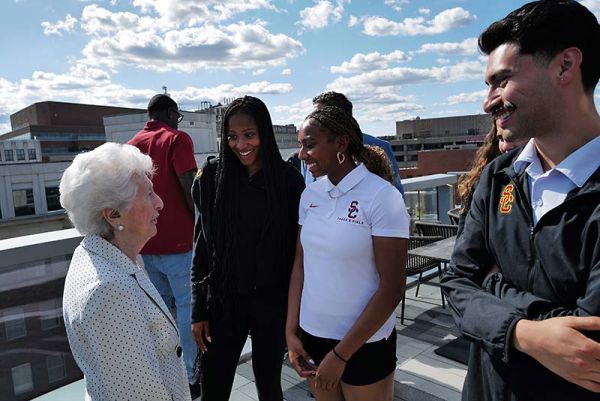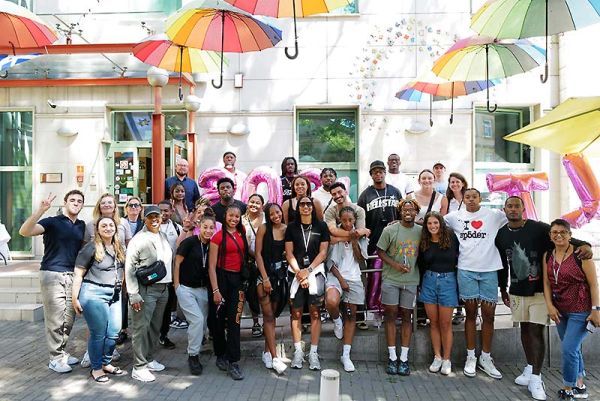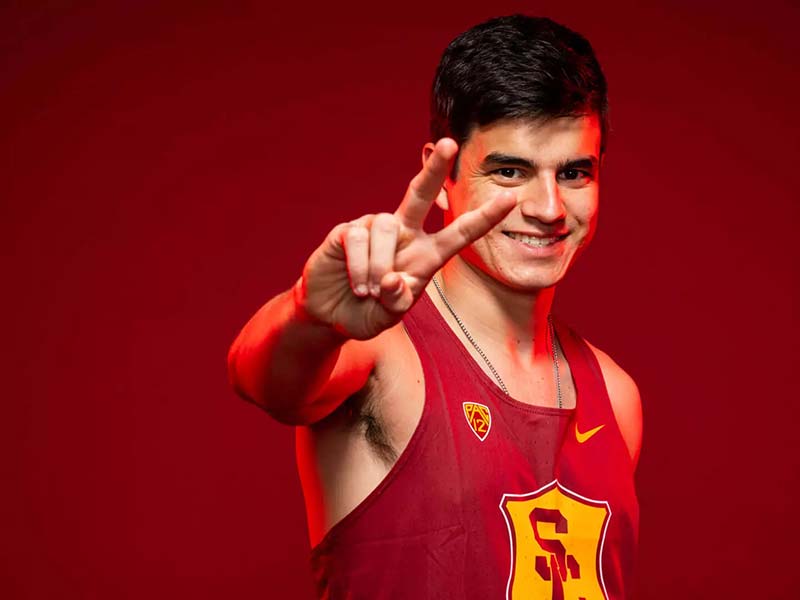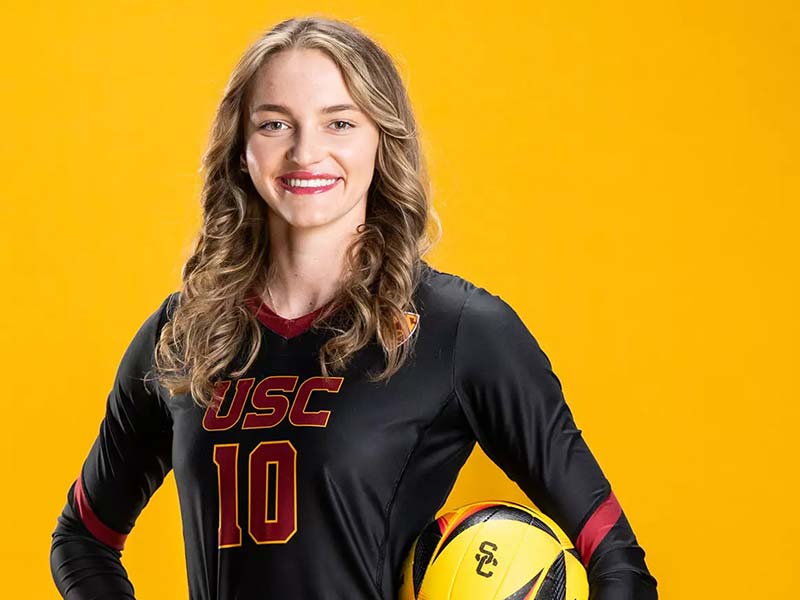The USC Shoah Foundation is committed to confronting and countering the most alarming surge in antisemitism since the end of the Holocaust, and our 30 years of experience teaches us that doing so requires long-term, deep-impact programming based in historical knowledge and personal connection.
The Student Leadership program brings student-athletes to Washington, D.C., and Europe for a transformational travel and educational experience that encourages them to embrace and activate their own leadership platforms as they learn to recognize the components and consequences of antisemitism.
The program was piloted in 2023 with a group of 15 USC student-athletes, followed by the 2024 Witness for the Future Student Leadership program.
As communities across the country grapple with how to respond in a new era of antisemitism, we envision an even broader impact as we expand this program to other universities.
The Student Leadership Program is made possible by support from the Epstein Family Foundation. The Epstein family’s generous matching gift helps ensure student athletes from across USC are able to participate in this program.
To learn more about this matching gift opportunity and provide even more student athletes the opportunity to engage, please contact Andrea Waldron, Associate Vice President of Advancement, at [email protected] or 213.700.7167.
A Transformative Experience
In 2024, we invited student-athletes on a Student Leadership program. Watch what they had to say about the experience.
Media Spotlight
Tom Rinaldi of FOX Sports spotlighted the Student Leadership program in a Big Noon Kickoff on FOX segment that aired on September 21 before a USC football game.

2024 Program Highlights

Participants:
- 20 USC student-athletes, including members of USC’s football, women’s basketball, track and field, women’s soccer, women’s beach volleyball, and women’s water polo teams.
June 29-July 1, USC’s Capital Campus in Washington, D.C.
- Workshops that included engaging with testimony, guided discussions, and exploration of hate and antisemitism across society, including on campus, in politics, online, and in sports.
- Meeting Holocaust survivor Irene Fogel Weiss
- Discussions with experts, including our Executive Director Dr. Robert J. Williams, and Ambassador Deborah Lipstadt, the U.S. State Department’s Special Envoy to Monitor and Combat Antisemitism
- Visits to the United States Holocaust Memorial Museum and the National Museum of African American History and Culture

July 2-8, Krakow, Poland
- Tours of the Kazimierz Old Jewish Quarter in Krakow, the Galicia Jewish Museum, and the Krakow JCC
- Visit to the Auschwitz-Birkenau Memorial and Museum
- Discussions with the American Consul General in Krakow, community activists, and engagement with testimony to provide context and depth to visits to historical sites
Garrison Madden
USC Football Team, 2024 Student Leadership program participant
“When you read something or even watch a movie you kind of get a feel of the emotions that these people went through, and you try to put yourself in their shoes, but when you’re actually there and stepping foot on some of the same ground that they did, it’s just a different feeling … being right there, and being right there in history.”

Jada Foreman
USC Track and Field, 2024 Student Leadership program participant
"Coming here has really opened another section to my mind as to where I'm not only focusing on what my community is going through, but also what other communities are going through and how I can be an ally in those of these other communities."

Kennie Arriola
USC Track and Field Distance Runner, 2024 Student Leadership program participant
“Coming out of this trip, I have more questions than I do answers ... not why this happened or what happened or who it happened to, but more present- and future-tense oriented questions, like, what can I do? Where do we want to end up in the future? What is a good place we can end up as a society to defeat this hatred against Jews? And how can I contribute to that?”

Madison White
USC Beach Volleyball, 2024 Student Leadership program participant
"I think now each and every one of us, including myself, who has gone on this trip knows what being a bystander is. … Being a bystander is not a positive thing, nor is it even neutral. Being a bystander allows people to commit acts of hate, of violence and it's not something that I want to be anymore.”
